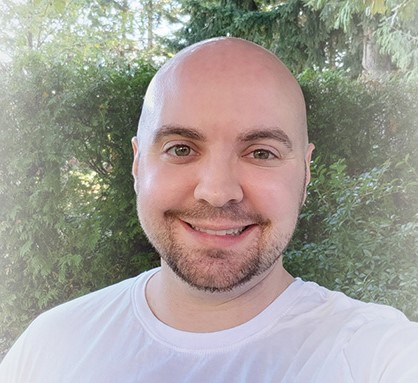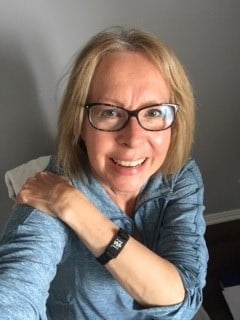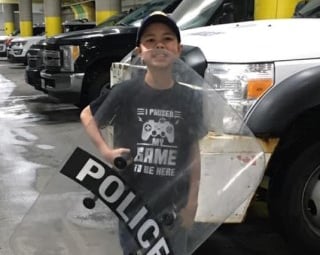Loki's Story: MedicAlert is there to help, too
 Sometimes, things are not as they appear. This is certainly true for Loki, one of the first people to benefit from MedicAlert’s Inclusion, Diversity and Equity in Action Program – the IDEA Program – that helps individuals who may find it more challenging to access health care services for a host of reasons.
Sometimes, things are not as they appear. This is certainly true for Loki, one of the first people to benefit from MedicAlert’s Inclusion, Diversity and Equity in Action Program – the IDEA Program – that helps individuals who may find it more challenging to access health care services for a host of reasons.
Loki, who identifies as transgender, was born with congenital scoliosis, a sideways curvature of the spine. It occurs in only 1 in 10,000 newborns and is much less common than the type of scoliosis that begins in adolescence. Most children are diagnosed at birth. For Loki, their condition was not diagnosed until they were eight years old. What went undetected at birth caused a cascade of health challenges for them.
The following year, Loki was diagnosed with post-traumatic tethered spinal cord syndrome. In post-traumatic tethered spinal cord syndrome, scar tissue forms and tethers or holds the spinal cord to the soft tissue covering which surrounds it. This scar tissue prevents the normal flow of spinal fluid and impedes the normal motion of the spinal cord. In the end, what Loki was facing at the age of nine was a health challenge most of us can’t even imagine. Their condition meant a progressive deterioration of their spinal cord which causes immense pain. There is no cure, and to manage the pain, patients are often prescribed opioids. But for Loki, this pain management tool was not an option. They are allergic to the medication.
Against incredible odds, Loki persevered through high school and college to become a Computer Aided Design (CAD) Technician – a career they loved. But slowly, over time, their condition worsened to the point where they could no longer work. Today, the 34-year-old British Columbia native lives on a disability pension but is grateful to be surrounded by family and friends who support them in working through the challenges that come with everyday life.
MedicAlert is there to help, too.
“Before I had a MedicAlert ID, I was living with constant anxiety,” says Loki. “I was worried about what could happen every time I left the house. What if I got into an accident? Most first responders wouldn’t know that I live with a spinal cord injury, have a catheter, or have life-threating allergies to opioids. MedicAlert doesn’t just provide peace-of-mind, it also provides personal safety. You never know when you’ll need it. The speed of information is so critical.”
But it’s not just Loki’s complex set of health conditions that need to be understood by first responders. More recently, they have undergone gender reassignment surgery.
“My MedicAlert health profile states that I am transgender. It’s a critically important fact for medical professionals to know. My surgery scars can be confusing for someone who does not know my medical history. It is possible that they might assume that I’ve had heart surgery in the past. I’m also unable to have a traditional catheter insertion because my anatomy is different than what someone might assume just by looking at me. It’s the extra information on my profile that will help medical professionals make the most informed decision if I’m ever in a serious medical emergency.”
Many disabled, elderly, or low-income individuals live with a chronic illness or a life-threatening condition. Without a recognized medical ID these people could be at risk in the event of a medical emergency. MedicAlert’s IDEA Program, funded through the generosity of our donor community, is designed specifically to meet the health emergency needs of these individuals.
For Loki, not having to choose between making rent payments or protecting their health is a significant weight of their shoulders.
“I love that I have the physical MedicAlert ID on me – I feel the protection. The added feature of the 24/7 Emergency Service Lifeline makes me feel secure. Should an incident arise, I know I’ll have a lifeline to help me.”
Loki is one of hundreds of people who turn to MedicAlert for help each year.



